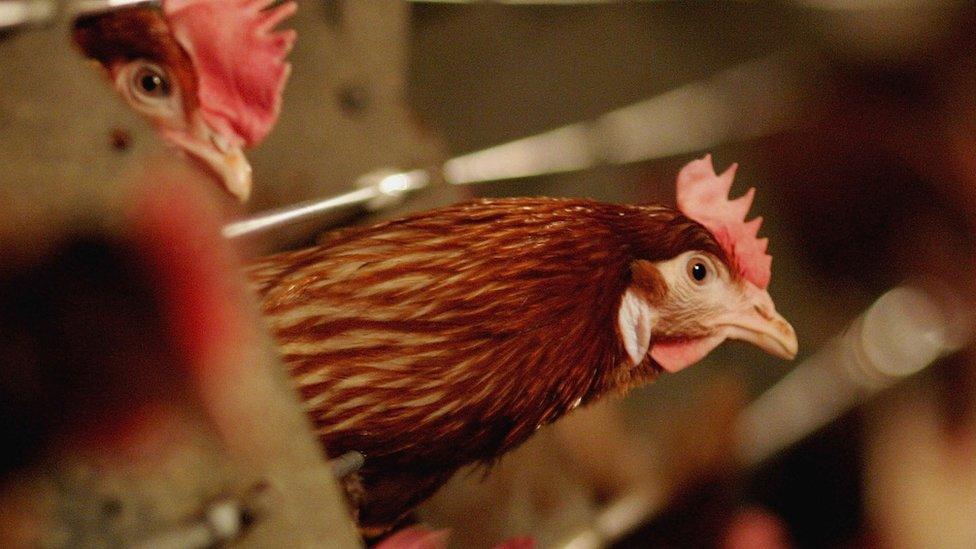Bird flu: Attleborough turkey farmer describes cull as a grievance
- Published
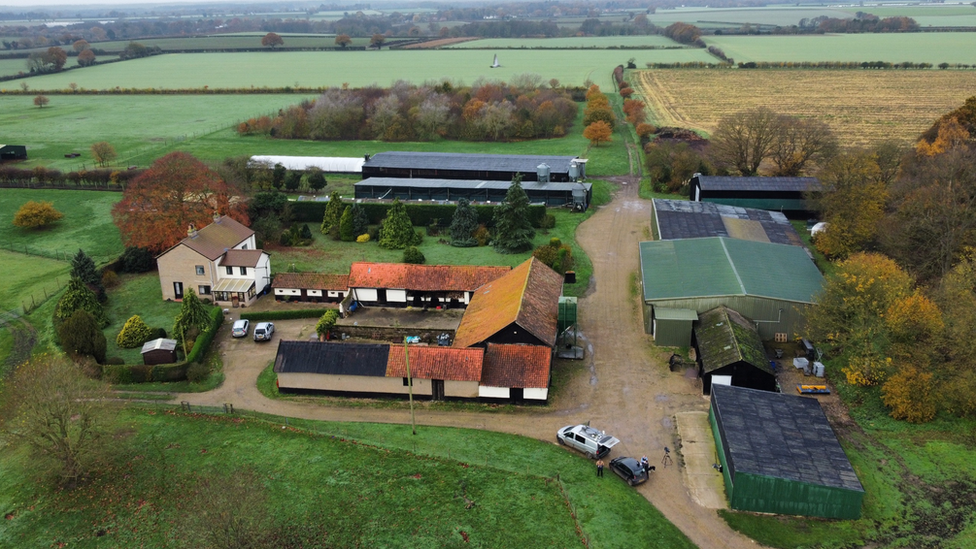
The farm has a "deathly silence", farmer Steve Childerhouse said
A poultry farmer who lost almost his entire flock of 1,400 turkeys and geese to bird flu said the ordeal had been "like a grievance".
Steve Childerhouse, 51, has farmed free range birds near Attleborough, Norfolk, for almost 40 years.
In September, all but six geese were culled during an outbreak of flu, leaving a "deathly silence" at what should have been his busiest period.
"It's the first time in 40 years we've not sold a bird," he said.
"The phone is normally ringing, we have a lot of contact with butchers and farm shops.
"Thursday would have been the day we would be processing. There's a lot of activity [elsewhere], but there was absolutely nothing here."
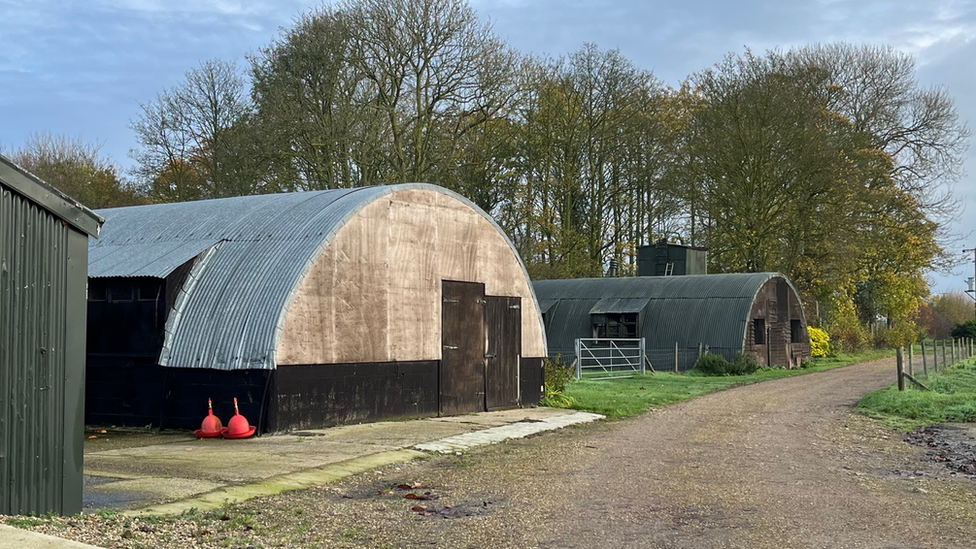
The buildings that housed free range birds at night cannot be re-used for 12 months after the outbreak
At the start of the outbreak birds appeared "subdued" and geese were walking in circles, which prompted his vet to contact the Department for Environment, Food and Rural Affairs (Defra).
"From seeing the first few deaths it multiplied very quickly to having a lot dying," he said.
"It absolutely ripped through them, we had never seen anything like it, it was awful.
"There have been tears, you just can't help it, it really did get to me.
"We look after the birds really well, because that's our ethos.
"The suffering that went on was devastating."
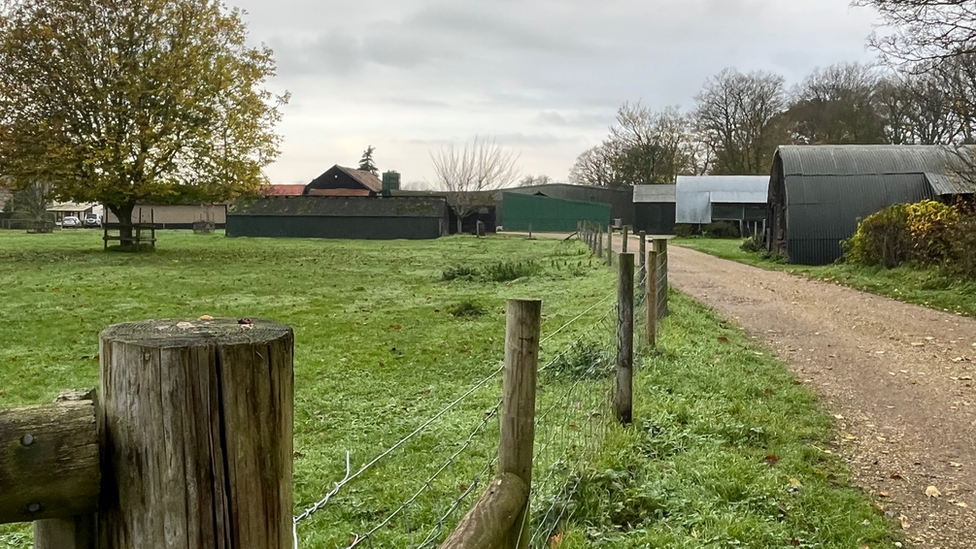
The farm would usually be incredibly busy from late November
Due to rules around bird flu contamination, Mr Childerhouse cannot restock his farm for 12 months after the outbreak.
This means he cannot supply birds for next Christmas, as preparations begin in June.
"I've been doing painting and decorating and helping on another farm, just finding anything to keep my mind occupied," he said.
"It's been like a grievance because you have to deal with it in that way.
"I'm determined to get back - I don't know anything different."
He said he would give "serious thought" to whether he would keep birds free range in future, with exposure to the virus from wild birds.
"We need a vaccination, as we will always be on tenterhooks," he added.
"Any producers like me always fear the worst. It's our livelihood."
The current outbreak of avian flu is the biggest on record in the UK.
Some 2.3m birds have died or been culled since October, according to Defra, including about half of the 1.3m free range turkeys produced for Christmas.
It has been mandatory to house all captive birds and poultry since 7 November, following an exclusion zone for all of Norfolk, Suffolk and most of Essex, which began a month earlier.
Defra said about 11m turkeys were produced annually in the UK, meaning there would still be a good supply for Christmas.
It has previously explained that although vaccines could reduce mortality, some vaccinated birds would still be capable of transmitting the disease if they became infected, while not displaying symptoms.

Find BBC News: East of England on Facebook, external, Instagram, external and Twitter, external. If you have a story suggestion email eastofenglandnews@bbc.co.uk
Related topics
- Published30 October 2022
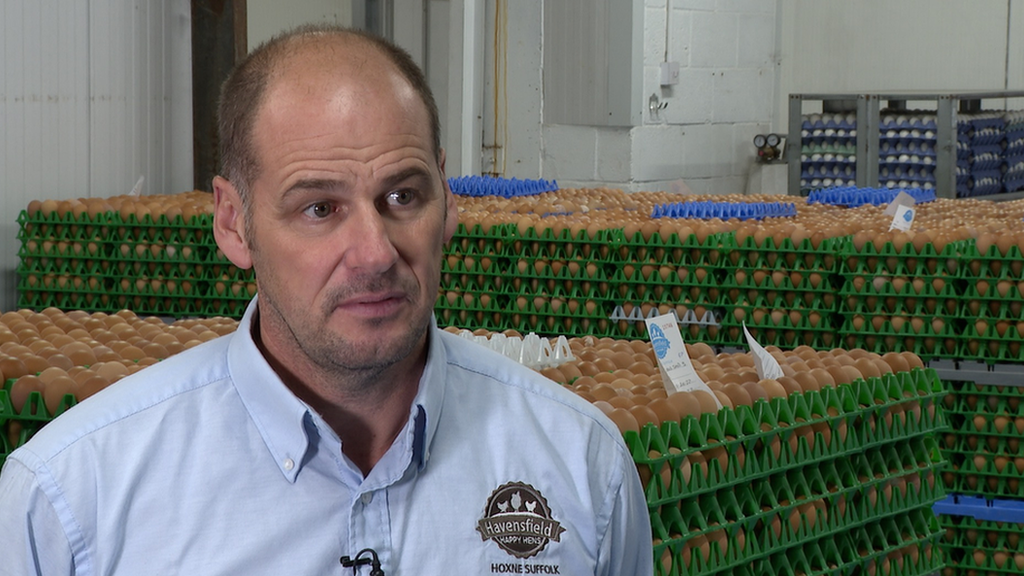
- Published12 October 2022
